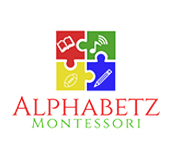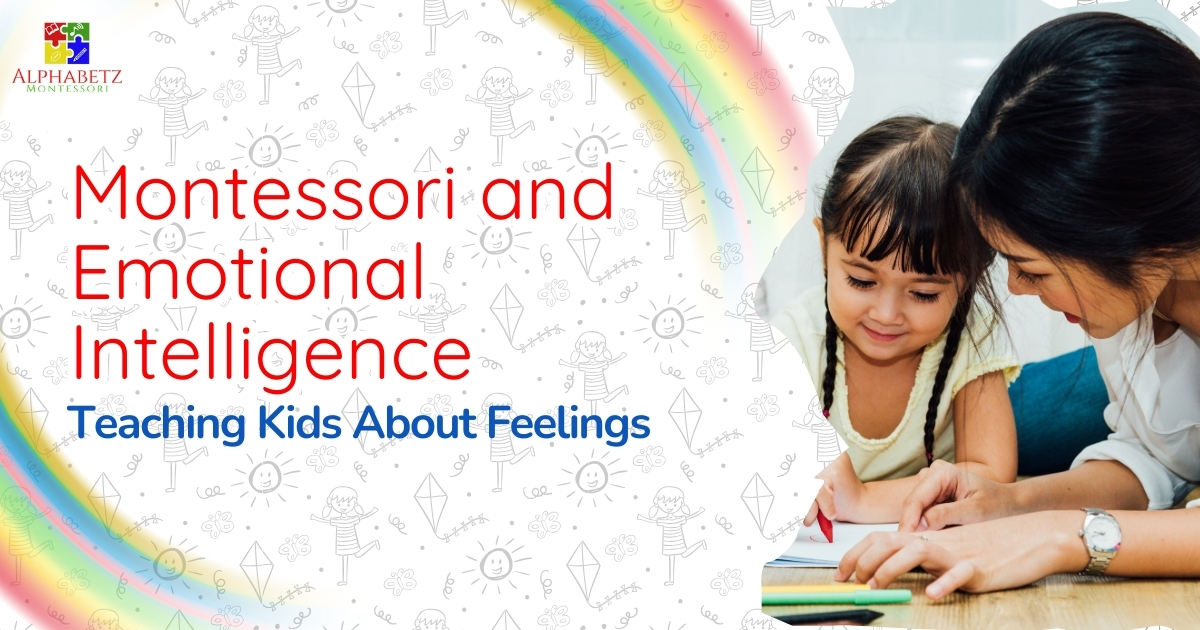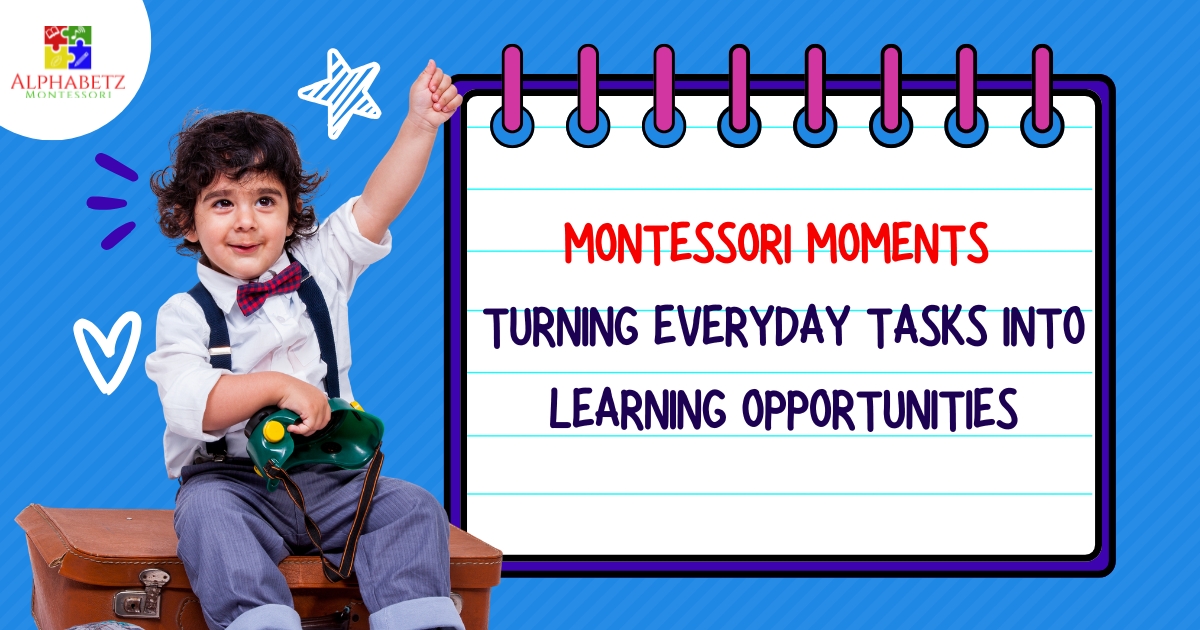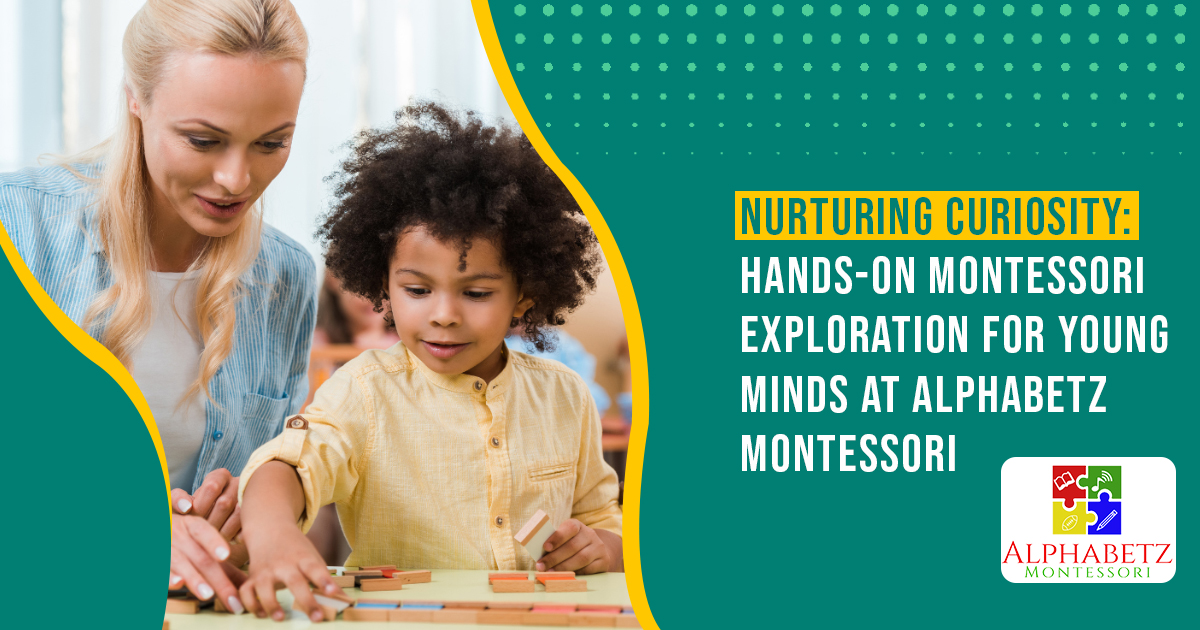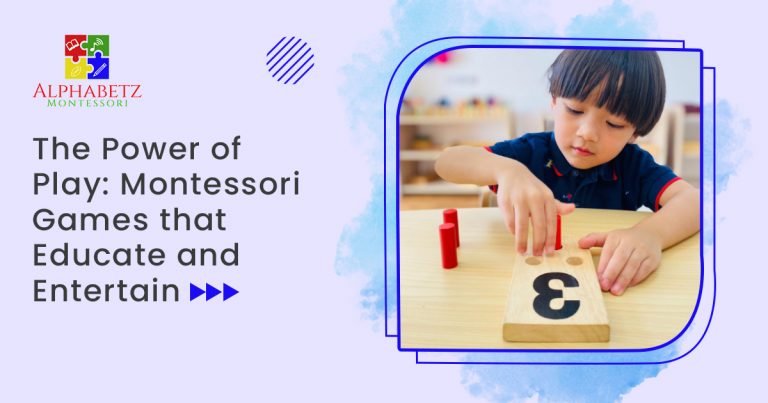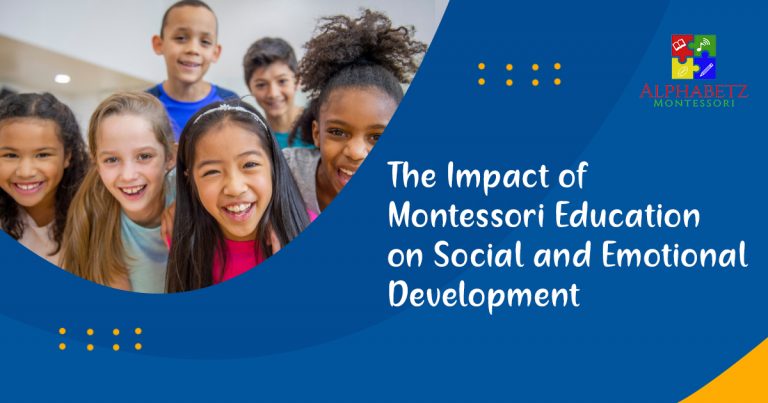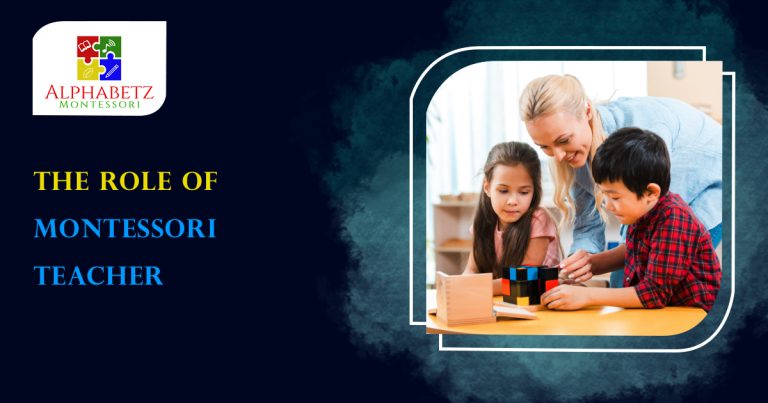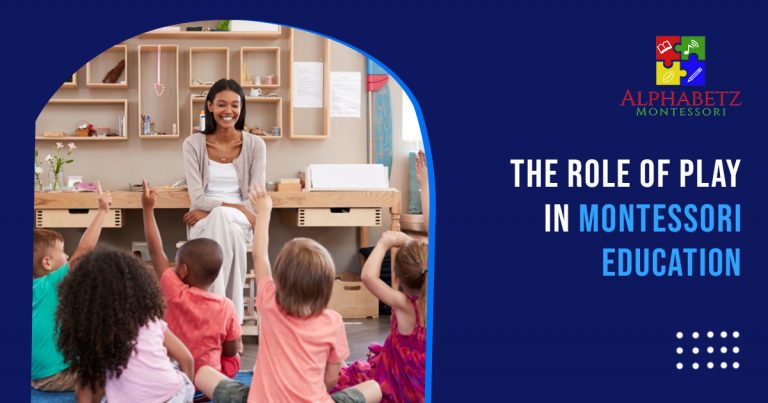Discover Montessori excellence in San Antonio at Alphabetz Montessori’s blog. Holistic development and nature-inspired learning await your child’s journey.
In early childhood, learning is not limited to letters and numbers. One of the most important foundations for lifelong success is emotional intelligence (EI) the ability to recognize, understand, and manage one’s own emotions while developing empathy for others. At Alphabetz Montessori, emotional development is thoughtfully woven into everyday learning, helping children grow into confident, compassionate, and self-aware individuals. What Is Emotional Intelligence in Early Childhood? Emotional intelligence includes skills such as identifying emotions, expressing…
In Montessori philosophy, learning isn’t confined to a classroom—it’s woven into every part of a child’s day. Everyday tasks like cooking, cleaning, gardening, or setting the table may seem simple, but they are rich with opportunities for growth, independence, and joy. At Alphabetz Montessori, we believe these daily activities are powerful tools to nurture skills that last a lifetime. Why Everyday Tasks Matter in Montessori Learning Montessori education emphasizes practical life activities—real-life tasks that help…
In today’s fast-paced world, parents are constantly searching for the best education for their children—one that nurtures creativity, fosters independence, and instills a lifelong love of learning. Montessori education has been a time-tested, research-backed approach that provides all of this and more. But what exactly makes Montessori so effective? Let’s explore the science behind Montessori education and how Alphabetz Montessori brings these principles to life, offering your child the best start to their academic journey.…
In today’s fast-paced world, parents are constantly searching for educational methods that promote the holistic development of their children. Alphabetz Montessori, a leading institution for Montessori in San Antonio, stands out as a unique and effective approach that focuses on hands-on learning and nurturing curiosity in young minds. With more families exploring Montessori options, it's important to understand how this method works and why it's beneficial for children, particularly during their formative years. What is…
Raising a curious infant is akin to being an explorer's guide, navigating through a world brimming with wonder and discovery. As caregivers, our role is not just to safeguard this journey but to enrich it, ensuring that every little exploration is both safe and stimulating. This blog delves into the art of fostering curiosity in infants, ensuring their adventures are as secure as they are enlightening. Setting the Stage for Safe Discovery Creating a secure…
Summer is a time of freedom and exploration for children, a break from the routine of school that opens up opportunities for growth and learning in new environments. One such opportunity is offered by Alphabetz Montessori through its summer camp program. Alphabetz Montessori, rooted in the Montessori educational philosophy, emphasizes self-directed activity, hands-on learning, and collaborative play. But when considering a summer camp for your child, one question often arises: "Will my child be fed…
In the modern world, children are often bombarded with screens and electronic devices that can limit their engagement with the physical world. As a result, the importance of play, particularly in an educational context like Montessori, cannot be overstated. The challenge lies in finding games that not only capture a child's attention but also contribute to their educational development. Montessori education has long recognized the significance of play as a powerful tool for learning. Engaging…
At Alphabetz Montessori, we believe in fostering well-rounded development in children, and that extends beyond academics. One of the remarkable aspects of Montessori education is its profound impact on a child's social and emotional growth. In this blog post, we'll explore how the Montessori approach nurtures these crucial aspects of development and equips children with valuable life skills. The Foundation of Social and Emotional Learning in Montessori: Montessori education places a strong emphasis on creating…
The Montessori approach to education is renowned for its child-centered philosophy, emphasizing the holistic development of each student. At Alphabetz Montessori, we embrace this methodology and recognize the indispensable role of our teachers in facilitating children's learning journeys. In this blog post, we will delve into the multifaceted responsibilities that our Montessori teachers undertake to create an enriching educational environment for every child. Observers: Understanding the Individual One of the fundamental aspects of a Montessori…
How Alphabetz Montessori in San Antonio, TX Provides the Best Learning Environment for Your Child Play is an essential part of childhood and a fundamental component of Montessori education. Alphabetz Montessori in San Antonio, TX is a leading Montessori school that recognizes the importance of play in supporting children's cognitive, social, and emotional development. With their carefully designed Montessori classroom environment, Alphabetz Montessori provides opportunities for self-directed play, sensory play, and cooperative play, creating an…
